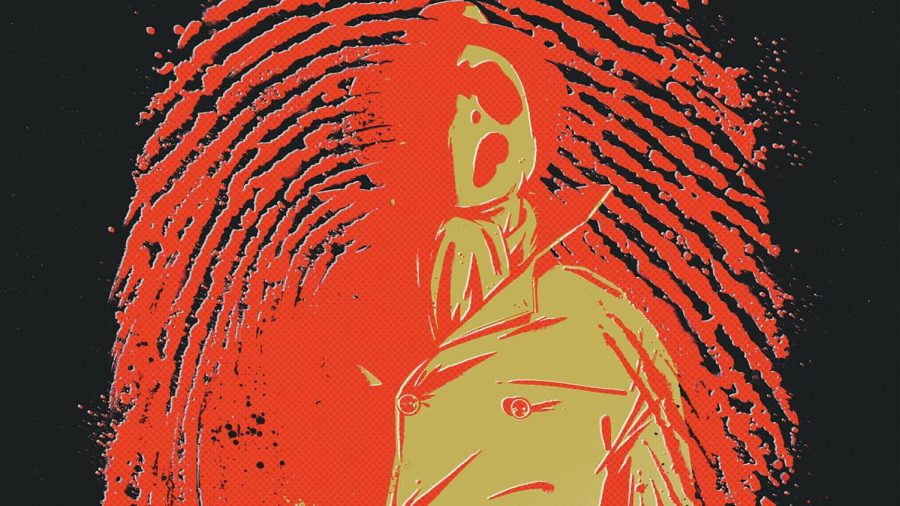Column: Tom King’s Watchmen sequel is relevant to past, present and future
Mar 28, 2022
Tom King, Jorge Fornes and Dave Stewart’s “Rorschach” is (another) sequel to “Watchmen” and follows in Alan Moore’s and Dave Gibbons’ footsteps, steeped in social relevancy and political commentary. Originally published as a 12-issue comic book series from 2020-21, “Rorschach” has now been collected in hardcover and paperback as a graphic novel.
The plot of “Rorschach” follows the gradual uncovering of a conspiracy related to the attempted assassination of a conservative presidential candidate, Governor Turley, who in the universe of “Watchmen,” is championing the GOP’s return to glory after years of enduring a successful progressive president. Turley’s campaign’s slogan is “Come the Conservative Revolution.” Not quite Ronald Reagan and Donald Trump’s “Make America Great Again,” but close. Reading the story, in dialogue from Turley supporters and scenes set in campaign rallies, the sentiment is there.
The point of “Rorschach” is more about superheroes and their role in the culture. The character Rorschach, introduced in Moore’s “Watchmen,” is a psychopathic, libertarian vigilante who would sooner die than compromises his — admittedly, frequently warped — beliefs. “Rorschach” pursues this theme of compromise, and boasting a nuanced cast of characters, picks up where Moore left off in his never-ending quest to analyze the superhero.
“Rorschach” is certainly a must-read for fans of “Spider-Man: No Way Home” and “The Batman,” which gave their main characters some genuine flaws; Tom Holland’s Spider-Man having a total willingness to take a life for a selfish reason and Robert Pattinson’s Batman being a hero and inspiration to domestic terrorists. King’s “Rorschach” presents three deeply human superheroes so hopelessly delusional and angry that they probably shouldn’t be called superheroes at all.
So, while the story isn’t really about American politics at its core, “Rorschach” is stress relief in the face of insurmountable political corruption.
While King’s story asks ‘What’s the point of superheroes?’ it also asks, much more quietly and maybe even subconsciously, ‘What if Trump’s initial election (or possible upcoming re-election) was preventable?’ It’s not an especially mature or nuanced question, and the answer — if the story is, in any way, offering an answer — is ugly and borders on horror.
To partially spoil the events of “Rorschach,” Governor Turley doesn’t, in the end, stand much of a chance of winning the election. There’s some liberal escapism and fantasy in reading a story where, ultimately, Trump — or a nuanced, not wholly unsympathetic cracked-mirror reflection of Trump — loses.
Beyond the base itch that King’s story scratches, its reading can serve a more meaningful purpose.
“Rorschach,” like many of King’s works written between 2016 and 2021, is informed by the stress anxiety that he and 60% of Americans experienced during Trump’s chaotic years as president. For four years, and beyond — like the spouse of a supreme court justice aiding in the attempted overturning of the election — the scandals and amorality never stopped.
To most Americans, those were a rough four years, and they were markedly worse for those who were directly targeted by Trump’s policies, like the immigrants inhumanely detained in camps and the members of the LGBTQ community whose rights were trampled.
Trump and other somehow more extreme candidates have already begun their 2024 campaigns for public office. The U.S. is being threatened with another four years of hyper-capitalistic and aggressively authoritarian leadership. With moderates and progressives rendered politically lethargic and cynically detached by a venomous presidency and a global pandemic, the future facing the world of “Watchmen”– an America overtaken by a wave of revenge-minded republicans– is facing our world, the real world, too.
“Rorschach” shouldn’t be read as a political manifesto or a handbook for dealing with conservatives. Superficial readings like that are a disservice to King and Fornes’ rich and complex story. You should read “Rorschach” because it stokes interest in the history of the comic book industry, because it’s an engaging political thriller and because it advances the long-running, often stagnant conversation about superheroes and their purpose.
But, as you read “Rorschach,” for all those reasons, let it be — quietly, and maybe insignificantly — a haunting reminder of the past and a grim portent of the near-future.























